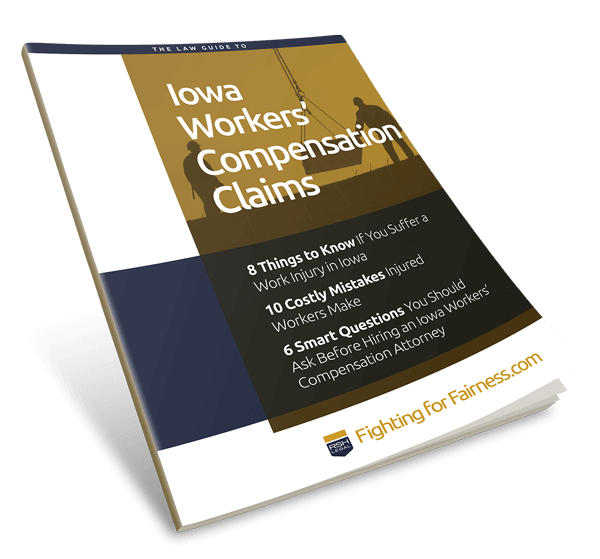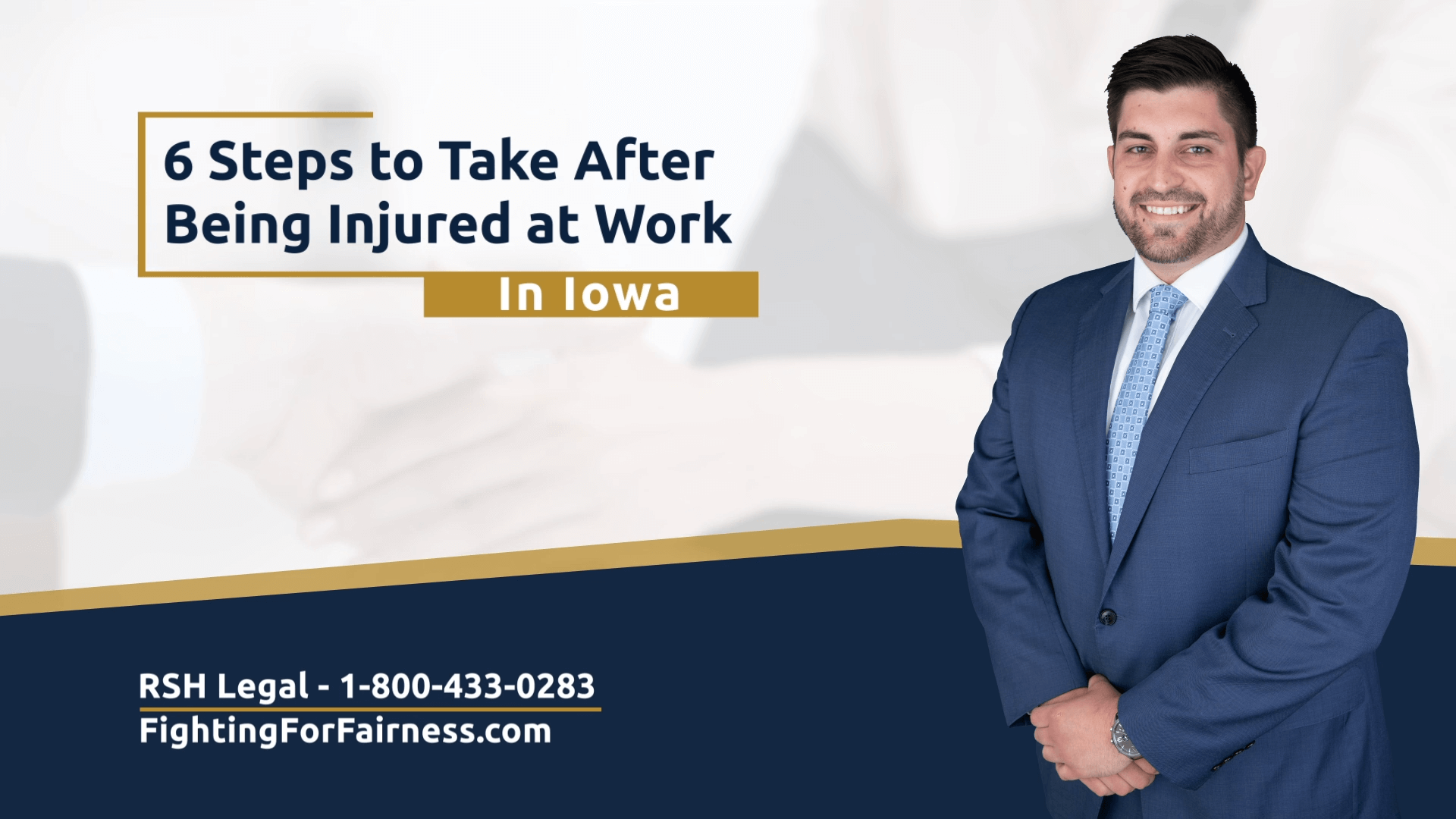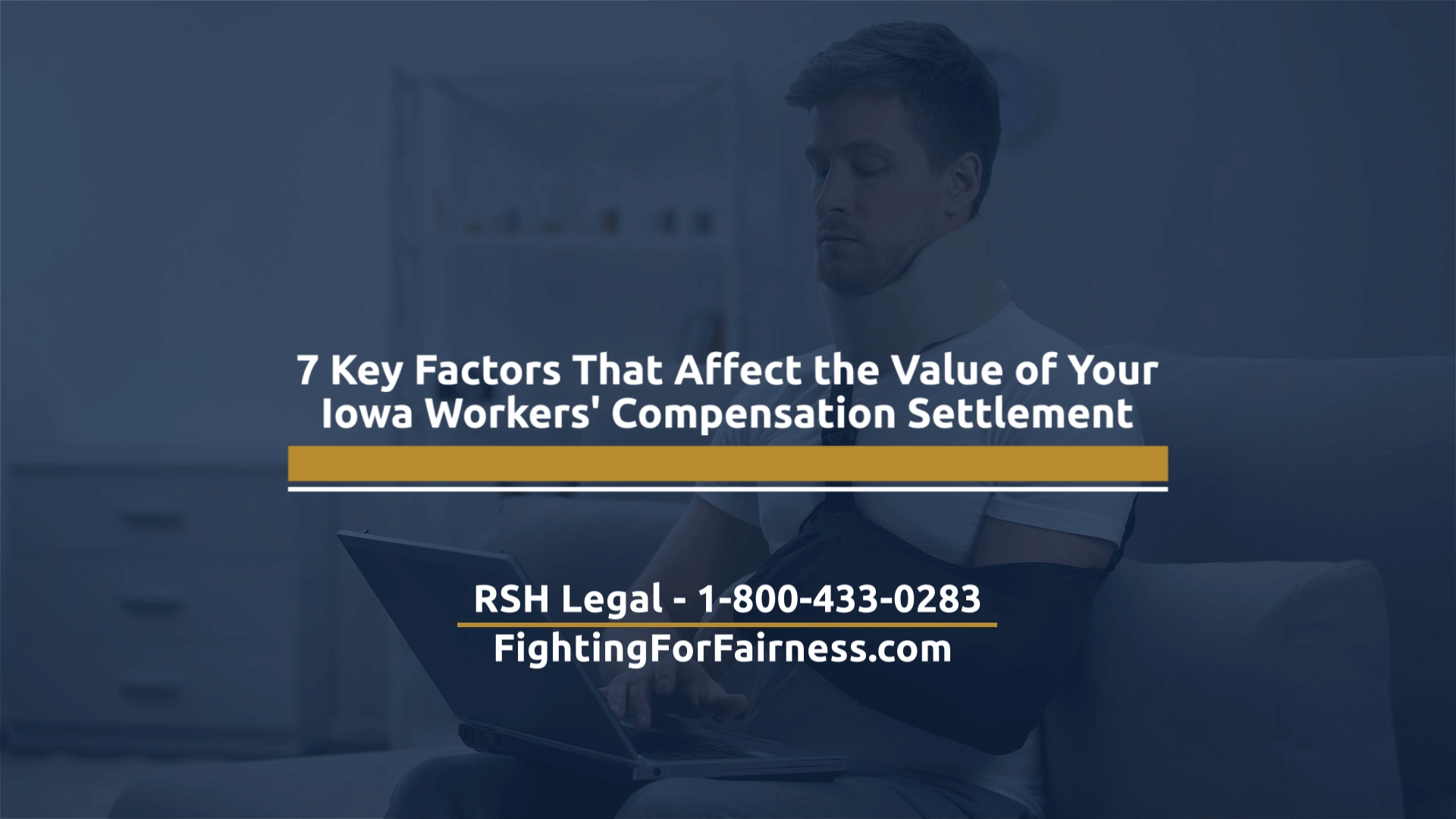Attention! Iowa’s Workers’ Compensation laws changed July 1, 2017. This article’s information may be out of date. Visit our Workers’ Compensation Page for more information.
I recently spoke to a group of Iowa workers’ compensation attorneys about handling claims for injured workers who go on to develop depression after a work injury. I was asked to give the talk because these types of claims are becoming more common—we handle several of them in our office.
Depression Is Surprisingly Common After a Work Injury
In my research for the talk, I found several articles that talked about the relationship between chronic pain and depression—the articles reported that anywhere between 52% to 66% of people suffering from Major Depressive Disorder are also suffering from chronic pain. There were similar rates of occurrence in people suffering from PTSD and Generalized Anxiety Disorder—more than half of them were also in pain. To me, it just makes sense that an injury, be it from a work accident, a car wreck, a medical mistake or anything else, that is physically and financially devastating, can lead to a mental health condition.
Work Comp Benefits Could Cover Your Mental Health Condition
In a workers’ compensation setting, if an injured worker develops a mental health condition as a result of a physical injury, the mental health claim may be a compensable work injury. This could entitle you to the same types of benefits that are available for a physical injury: medical care costs, time off of work benefits, and permanent disability benefits (loss of the ability to work in some capacity).
In a civil case, such as a car wreck, a slip and fall, or a medical malpractice case, one area of compensation a jury can award is mental anguish/pain and suffering. If the mental health condition causes the injured person to lose the ability to earn, a jury can also award past lost earnings and loss of future earning capacity.
If you are not feeling like yourself, and you think the change in your mood has something to do with your physical injuries, it should not be overlooked —not by you, not by your doctor, and not by your attorney.
First, let your doctor know about your mood change so you can get the proper care as soon as you need it. If it is your loved one who is injured, encourage them to seek help. Here are some common signs of depression and anxiety:
Depression
- Feelings of sadness, tearfulness, emptiness or hopelessness
- Angry outbursts, irritability or frustration, even over small matters
- Loss of interest or pleasure in most or all normal activities
- Sleep disturbances (too much or little)
- Tiredness and lack of energy
- Changes in appetite
- Anxiety, agitation or restlessness
- Slowed thinking, speaking or body movements
- Feelings of worthlessness or guilt, fixating on past failures or blaming yourself for things that aren’t your responsibility
- Trouble thinking, concentrating, making decisions and remembering things
- Frequent or recurrent thoughts of death, suicidal thoughts, suicide attempts or suicide
- Unexplained physical problems, such as back pain or headaches
Anxiety
- Persistent worrying that’s out of proportion to the impact of the event
- Inability to let go of a worry
- Inability to relax, restlessness
- Difficulty concentrating
- Worrying about excessively worrying
- Distress about making decisions
- Carrying every option all the way out to its possible negative conclusion
- Difficulty handling uncertainty or indecisiveness
Once you’ve talked to your doctors, you should let your attorney know about any changes in your mental health that you believe are related to your physical injuries.
Talk to Your Attorney About Your Mental Health
We are not going to force you into bringing a claim related to your mental health—it will always be your decision. Compensation may not be available in every case—the injured person has to prove a causal connection between the physical and mental injury and that will ultimately come down to what a doctor has to say. But you should at least put your potential claim in on our radar so we can talk to you about your rights, and investigate it.
These injuries are real. They aren’t fun to talk about, but understand that we spend a lot of time with people who are dealing with pain and life-changing situations. We know that it is normal for these situations to affect your mood. You should not be ashamed. We are here and ready to listen. Contact us today at 319-519-4193.




